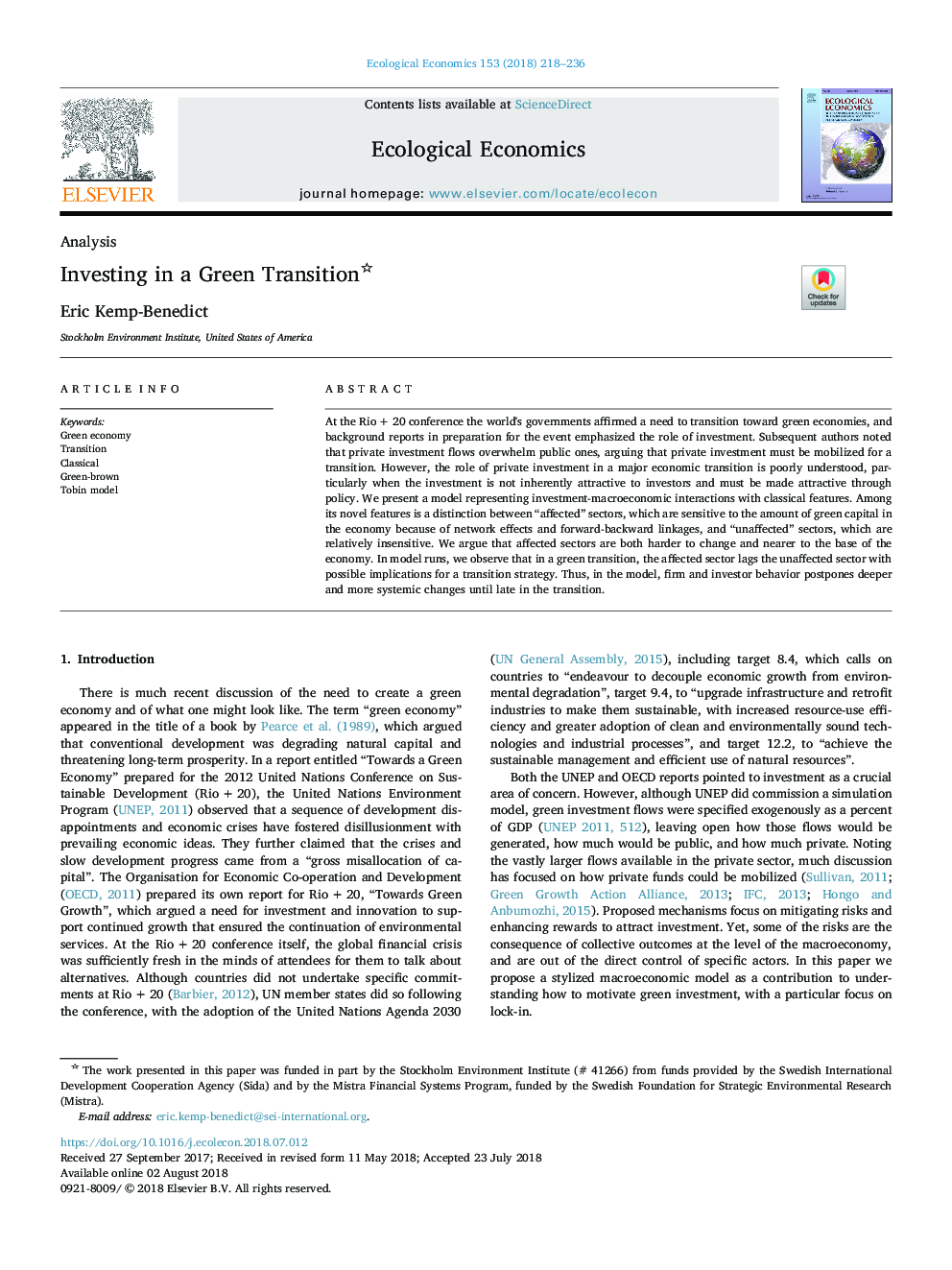| Article ID | Journal | Published Year | Pages | File Type |
|---|---|---|---|---|
| 7343793 | Ecological Economics | 2018 | 19 Pages |
Abstract
At the Rioâ¯+â¯20 conference the world's governments affirmed a need to transition toward green economies, and background reports in preparation for the event emphasized the role of investment. Subsequent authors noted that private investment flows overwhelm public ones, arguing that private investment must be mobilized for a transition. However, the role of private investment in a major economic transition is poorly understood, particularly when the investment is not inherently attractive to investors and must be made attractive through policy. We present a model representing investment-macroeconomic interactions with classical features. Among its novel features is a distinction between “affected” sectors, which are sensitive to the amount of green capital in the economy because of network effects and forward-backward linkages, and “unaffected” sectors, which are relatively insensitive. We argue that affected sectors are both harder to change and nearer to the base of the economy. In model runs, we observe that in a green transition, the affected sector lags the unaffected sector with possible implications for a transition strategy. Thus, in the model, firm and investor behavior postpones deeper and more systemic changes until late in the transition.
Keywords
Related Topics
Life Sciences
Agricultural and Biological Sciences
Ecology, Evolution, Behavior and Systematics
Authors
Eric Kemp-Benedict,
